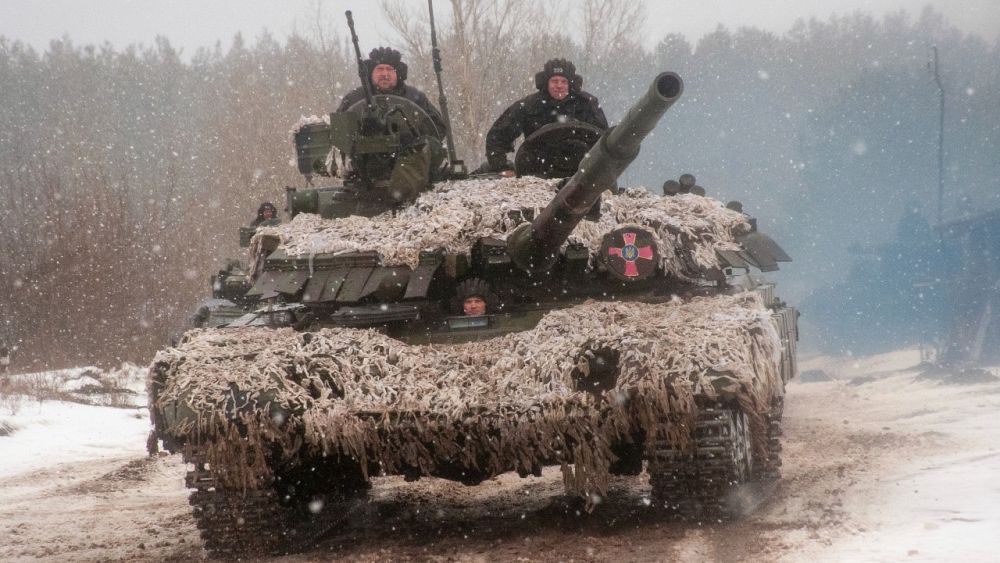
US President Joe Biden has repeated his warning that any Americans still in Ukraine should leave as soon as possible.
“It’s not like we’re dealing with a terrorist organisation. We’re dealing with one of the largest armies in the world. It’s a very different situation and things could go crazy quickly,” he said in an interview with NBC News broadcast on Thursday.
Asked whether there was any scenario that would prompt him to send US troops to Ukraine to rescue Americans, the president said: “There’s not. That’s a world war when Americans and Russia start shooting at one another.”
“We’re in a very different world than we’ve ever been,” he added.
He argued that if Putin is “foolish enough to go in, he’s smart enough not to, in fact, do anything that would negatively impact on American citizens.”
Asked whether he’s ever said that to Putin, Biden said he had. “I didn’t have to tell him that. I’ve spoken about that. He knows that,” the US president said.
The State Department for weeks has advised Americans in Ukraine to leave the country.
No breakthrough in Berlin talks
The US president’s comments came after a day of diplomatic efforts in Europe to ease tensions over Ukraine — where Russia has massed more than 100,000 troops near its border — with little signs of making headway.
Foreign policy advisers from Germany, France, Russia and Ukraine, who met in Paris last month, held another round of talks in Berlin. They reported no progress on the implementation of a 2015 peace agreement that helped end full-scale hostilities between Ukrainian forces and Russia-backed separatists in eastern Ukraine.
In Moscow, Britain’s defence minister Ben Wallace is due to meet his Russian counterpart Sergei Shoygu on Friday, in an attempt to make more diplomatic progress than the UK’s top envoy achieved the previous day.
Foreign Secretary Liz Truss openly clashed with Sergei Lavrov after talks that the Russian foreign minister described as “quarrelsome”.
Truss again warned that an attack on Ukraine would “have massive consequences and carry severe costs”, and called on Russia to “desist from the threats” and respect international agreements.
In response, Lavrov slammed Western “ideological approaches, ultimatums and moralising” as “a road to nowhere”, and briefly walked out of their joint news conference.
In Brussels, NATO Secretary-General Jens Stoltenberg said he had reiterated an offer to Russia for continued dialogue on how to “find a diplomatic way forward”. But he stressed the military alliance would not compromise on core principles.
Appearing alongside him, British Prime Minister Boris Johnson said “the stakes are very high and this is a very dangerous moment, and at stake are the rules that protect every nation, every nation big and small”.
Poland thanks UK for support
Johnson travelled from Brussels to Warsaw for talks with Polish Prime Minister Mateusz Morawiecki.
The two leaders went to meet British soldiers stationed near Poland’s capital as part of a NATO mission to augment the alliance’s eastern flank. Poland borders Belarus, Ukraine and Russia’s Kaliningrad region.
“Putin’s political goal is to break up NATO. That’s why we need to stay close together,” Morawiecki said.
“On one side of the scales, there is freedom and European security. On the other side, there is destabilization and the things that the Kremlin is cooking up,” he said.
“We want to build bridges and connections with Russia, but we want to build them on the foundation of peace,” the Polish prime minister said.
Later he posted on Twitter to thank Johnson for Britain’s support, saying “the United Kingdom perfectly understands the consequences of Russia’s aggression”.
Also on Thursday, Russia and Belarus began joint military exercises on Belarusian territory due to last 10 days — Russia’s defence ministry describing their purpose as defensive.
Russia’s military buildup on the Ukrainian border has prompted threats of more sanctions from the West should Russia attack its neighbour. Moscow denies planning an invasion.
Meanwhile, more NATO forces also are on the move, heading to the alliance’s eastern borders, while Britain is putting 1,000 troops on standby to respond to a possible humanitarian crisis.
Moscow wants guarantees that NATO will halt its eastward expansion, rule out membership for Ukraine and other ex-Soviet countries, and roll back military deployments in Europe.